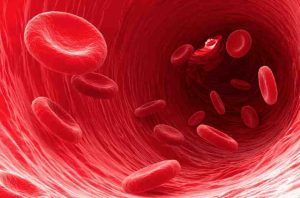
Rilmenidine, a common hypertension drug, has emerged as a fascinating candidate in the fight against aging. While it’s far too early to hail it as an anti-aging miracle cure, recent research in worms and mice shows promise for its potential to mimic the longevity benefits of caloric restriction, a dietary approach linked to extended lifespan in various animal models.
The allure of rilmenidine lies in its ability to potentially deliver the advantages of calorie restriction – a notoriously difficult and side-effect ridden approach – in a more palatable form. Caloric restriction essentially reduces the body’s available energy while ensuring it still receives the necessary nutrients. This seemingly paradoxical strategy has been shown to extend lifespans in creatures ranging from yeast to worms to flies.
The new study, published in January, investigated the effects of rilmenidine on the roundworm Caenorhabditis elegans, a favorite in biological research due to the significant overlap between its genes and those found in humans. When treated with the drug, both young and old worms not only lived longer but also displayed improved health markers, mirroring the effects of calorie restriction. This exciting finding suggests rilmenidine might nudge cellular processes in a direction associated with longevity.
Further exploration in mice revealed that rilmenidine triggered gene activity patterns in the liver and kidneys that resembled those observed under caloric restriction. This implies that the drug might be inducing some of the same cellular changes believed to promote healthy aging.
The researchers also identified a specific biological receptor, nish-1, as critical for rilmenidine’s lifespan-extending effects. This discovery opens doors for future research targeting this receptor with the aim of developing even more potent anti-aging interventions.
The potential advantages of rilmenidine are numerous. Unlike calorie restriction, which often leads to unpleasant side effects like fatigue, hair loss, and weakened bones, rilmenidine is already an established medication with a known safety profile. It’s administered orally, a convenient route compared to more invasive methods, and side effects tend to be mild and infrequent.
Of course, there’s a significant leap from worms and mice to humans. The next crucial step will be conducting clinical trials to determine rilmenidine’s safety and efficacy in our own species. This process is likely to be lengthy and meticulous, but the initial findings warrant this in-depth investigation.
The implications of a successful translation to humans are significant. With our global population aging rapidly, even a modest delay in the onset of age-related diseases could have a profound impact. Imagine a future where a readily available medication helps us maintain a healthier and more vibrant life for longer. While rilmenidine might not be the ultimate answer, it represents a significant step forward in our quest to understand and potentially manipulate the aging process. The journey has just begun, but the early signs are undeniably encouraging.


